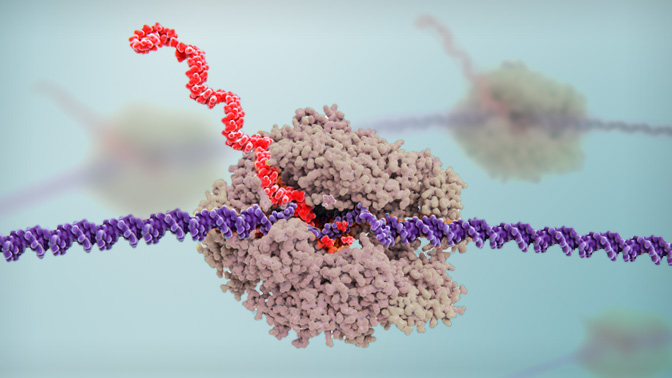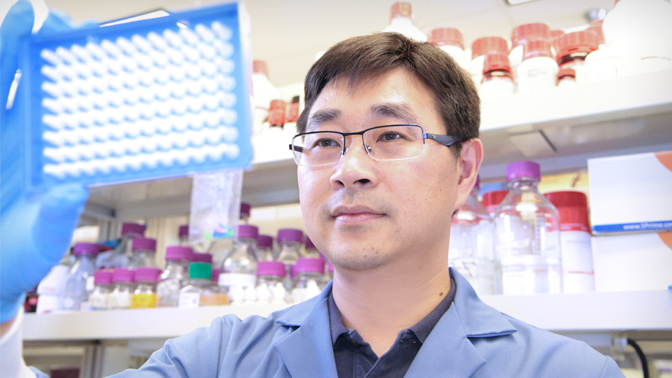
Most cells in our body carry a copy of our genome—the genetic blueprint that is unique to each of us. When constructing its cellular machinery, each cell references or ‘looks up’ specific parts of our genetic blueprint according to the cell’s function.
“When it comes to cancer, just knowing what our genome says is not enough. In order to understand what the cancer cells are actually doing, we need to know which parts of the blueprint they are transcribing—the transcriptome of cancer cells,” says Dr. Hansen He, Senior Scientist at Princess Margaret Cancer Centre.
Dr. He collaborated with Dr. Shancheng Ren at Shanghai Changhai Hospital and Dr. Jianhua Wang at Fudan University in China to sequence the transcriptome of prostate cancer cells. The team obtained the transcriptomes of 36,424 single cells from 13 tumours of 12 prostate cancer patients.
Prostate cancer is the most common cancer in North American men, with a diverse pattern of progression. In some cases, the disease progresses very slowly for years; in others, aggressive disease spreads quickly and becomes incurable.
By analyzing the transcriptome from prostate tumours, the research team was able to identify a group of epithelial cells that promote aggressive disease. These epithelial cells line the blood vessels that supply nutrients to the tumour. A portion of these cells also actively communicate with prostate tumour cells to promote their spread.
“We also found that prostate tumour cells were able to change the transcriptomes of the body’s immune cells. This suppressed the body’s immune response to the tumour cells which further enabled the cancer to spread,” says Dr. He.
“These results highlight the need for more comprehensive single-cell sequencing of prostate cancer. By linking this information to clinical outcomes, we will be able to better identify biomarkers and therapeutic targets of aggressive disease.”
This work was supported by the National Key R&D Plan of the China Precision Medicine Project, National Natural Science Foundation of China, The Princess Margaret Cancer Foundation, Canada Foundation for Innovation, Ontario Research Fund, Natural Sciences and Engineering Research Council of Canada, Canadian Cancer Society, Prostate Cancer Canada, Canadian Institutes of Health Research, and the Terry Fox New Frontiers Program. D De Carvalho holds a Tier 2 Canada Research Chair in Neoplasms.
Chen S, Zhu G, Yang Y, Wang F, Xiao YT, Zhang N, Bian X, Zhu Y, Yu Y, Liu F, Dong K, Mariscal J, Liu Y, Soares F, Loo Yau H, Zhang B, Chen W, Wang C, Chen D, Guo Q, Yi Z, Liu M, Fraser M, De Carvalho DD, Boutros PC, Di Vizio D, Jiang Z, van der Kwast T, Berlin A, Wu S, Wang J, He HH, Ren S. Single-cell analysis reveals transcriptomic remodellings in distinct cell types that contribute to human prostate cancer progression. Nat Cell Biol. 2021 Jan. doi: 10.1038/s41556-020-00613-6.

Dr. Hansen He, Senior Scientist at Princess Margaret Cancer Centre, is one of the senior authors of the study.




